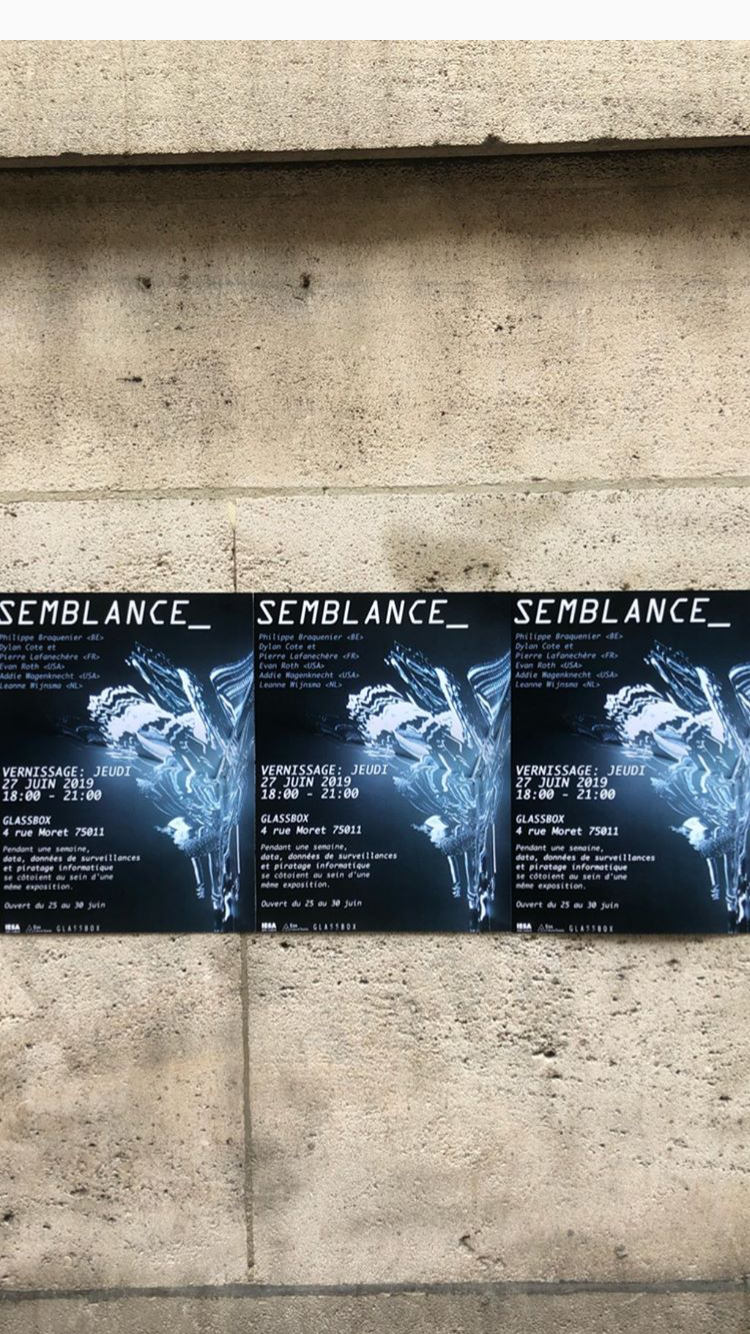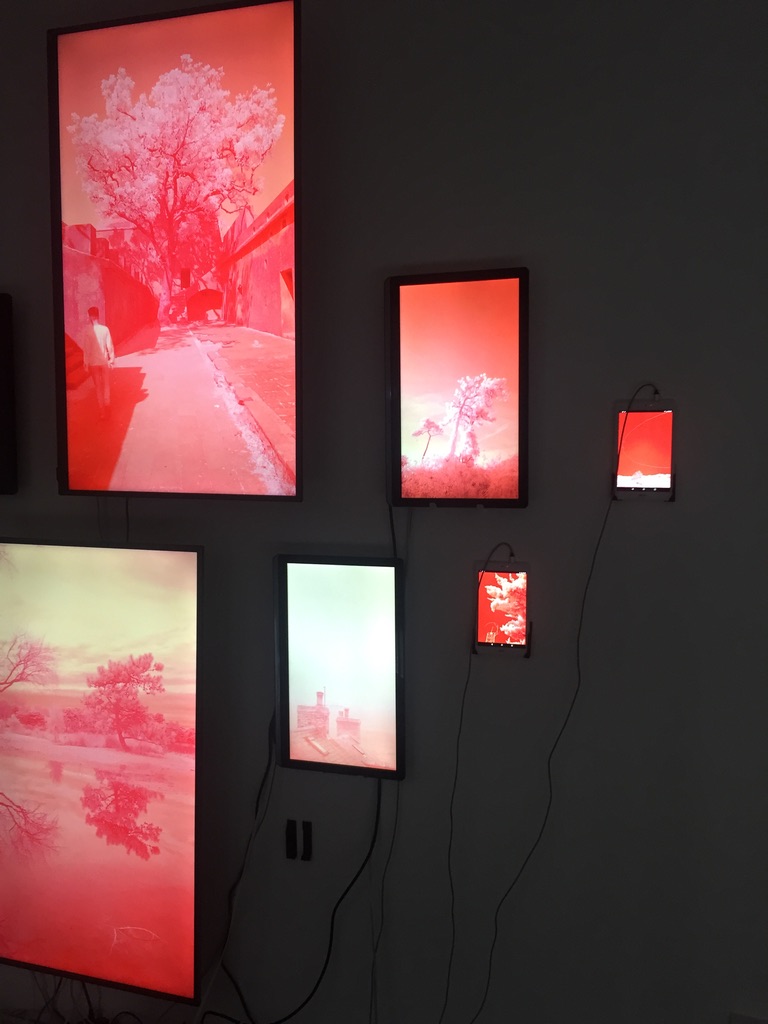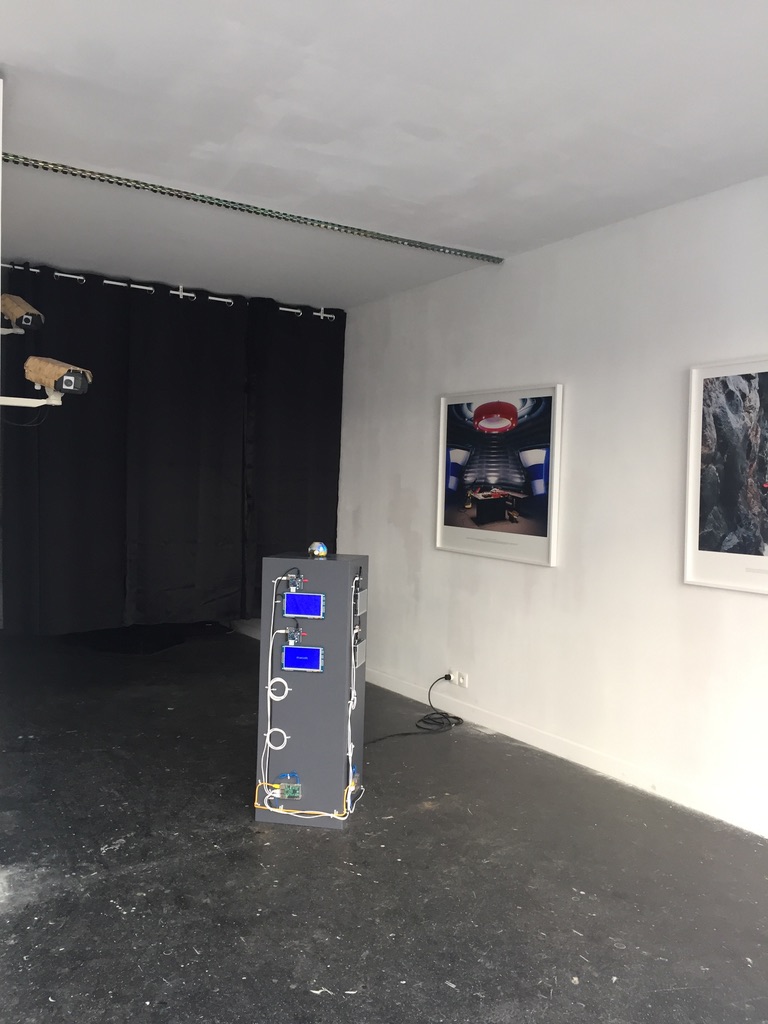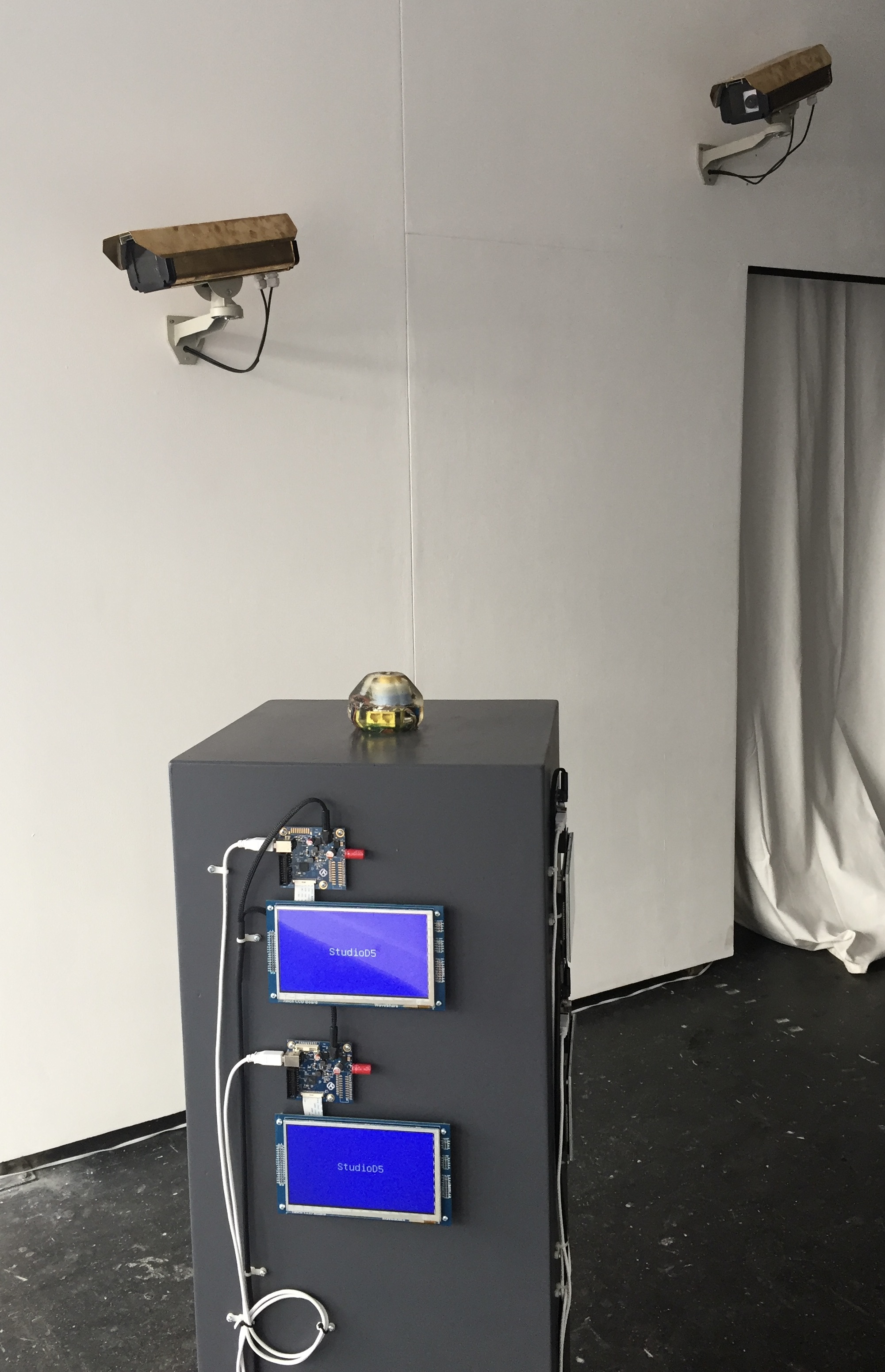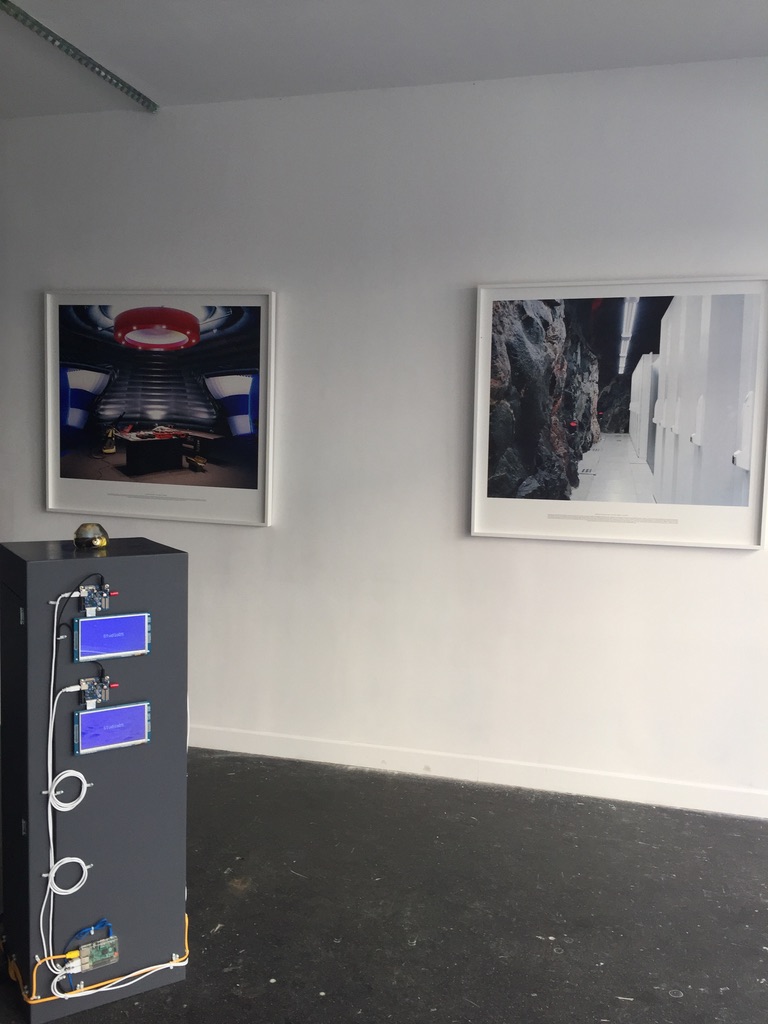Artists exhibited: Philippe Braquenier, Dylan Cote and Pierre Lafanechère, Evan Roth, Addie Wagenknecht, Leanne Wijnsma
Taking cues from the writings of Edward Snowden and Cathy O’Neil, Semblance was an exhibition that brought together the work of six international artists: Philippe Braquenier (BE), Dylan Cote and Pierre Lafanechère (FR), Evan Roth (USA), Addie Wagenknecht (USA), and Leanne Wijnsma (NL) who harness data, surveillance, and hacker philosophies in their pieces.
The intangibility of data allows it to be misused, often resulting in secret modes of surveillance. These artists transform this intangibility into palpable objects, revealing how our data is being collected, transformed, and sold.
Whether we are aware of it or not, our data is being stored and sold for profit to competitive intelligence and advertising agencies throughout the world on a regular basis. We often choose to ignore how the internet functions and what algorithms are due to a general mistunderstanding of technology. We allow ourselves to place blind faith in big data.
Many individuals may claim that they have nothing to hide in their personal data. By saying this, we are allowing our rights to be taken away, and we never know when we will need them. We require warrants for a similar reason: trusting the government to carry out the law without reasonable cause is too great of a risk.
It is important for us as citizens to understand how data collection works, how it can be oppressive, and why we should encrypt our devices.
We are questioning if being able to see, hear, or smell data will develop the viewer’s trust and instinctual relationship with technology in the future.
Can art reveal hidden problems in society and make these issues more easily digestible?


Sadly, no professional images survived the exhibition, but here are some photos from my phone:
